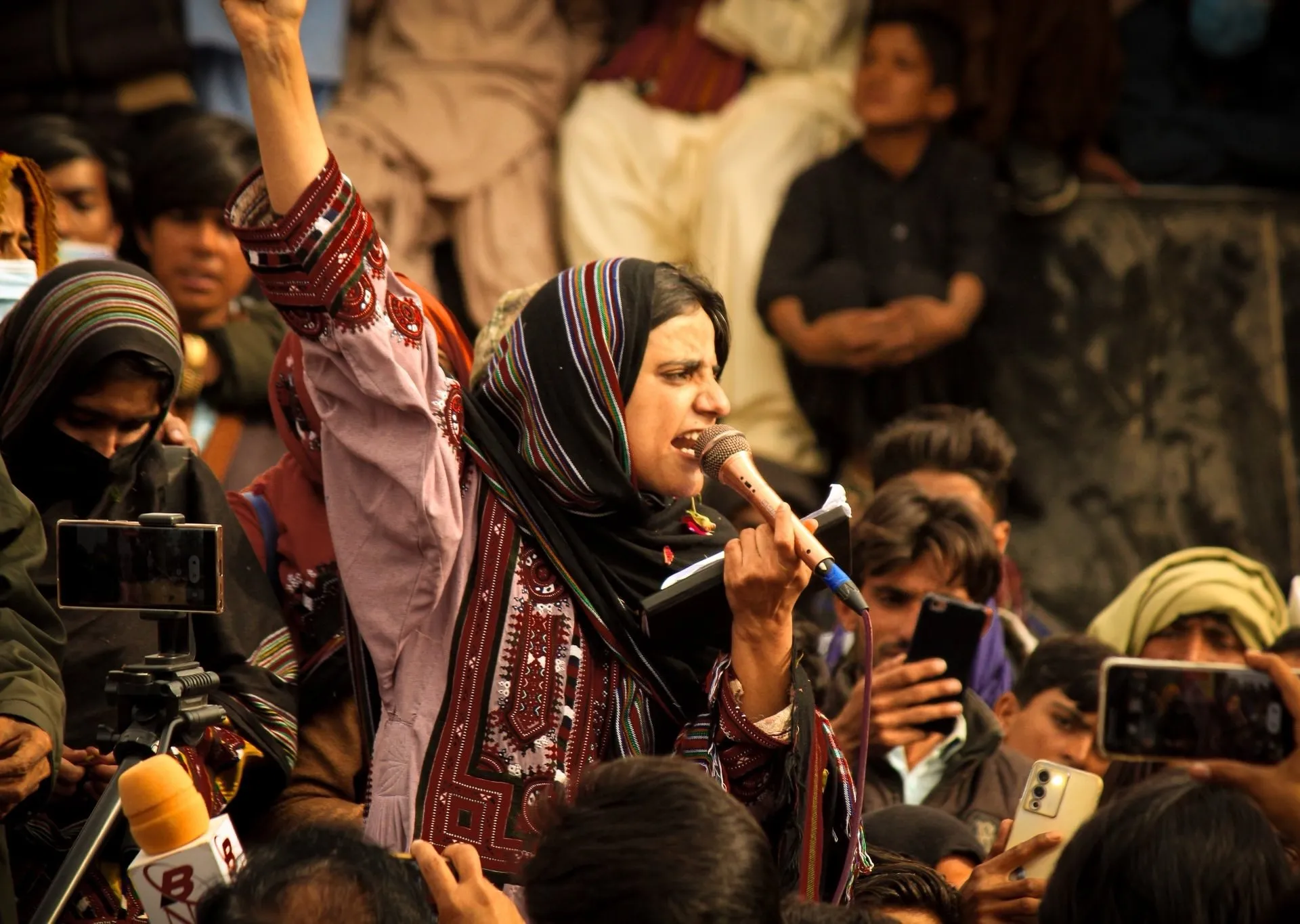In the intricate mosaic of South Asian history. Certain figures stand out not only for their actions but for the resonance of their legacies. Mahrang Baloch, a name that may not be widely known outside specific circles, is one such figure whose story is both compelling and emblematic of broader themes of resistance and cultural pride.
Unveiling the Warrior Spirit
Mahrang Baloch was born in the early 19th century in the Balochistan region of present-day Pakistan. Was a formidable leader and a symbol of resistance against colonial encroachment and local oppression. The Balochistan region, with its rugged terrain and strategic importance, has long been a crucible of conflict, and Mahrang Baloch’s life unfolded against this tumultuous backdrop.
From a young age, Mahrang exhibited a fierce spirit and an unwavering commitment to the Baloch cause. His early years were marked by a deep engagement with the tribal traditions and a growing awareness of the encroaching British colonial interests. This awareness evolved into a determined resistance against the forces seeking to dominate his homeland.
The Struggle Against Colonialism
The British Empire, in its quest for expansion, had set its sights on Balochistan, aiming to control its strategic routes and resources. Mahrang Baloch emerged as a central figure in the resistance against these colonial ambitions. Leading a series of rebellions and skirmishes. He became a thorn in the side of the British forces.
Mahrang’s strategies were not merely reactive but also innovative. His deep knowledge of the local geography allowed him to orchestrate ambushes and hit-and-run. Tactics that proved highly effective against the better-equipped British troops. His leadership inspired a sense of unity and resilience among the Baloch tribes, galvanizing them to stand firm against external pressures.
The Cultural Icon
Beyond his military endeavors, Mahrang Baloch is also remembered as a cultural icon who championed the Baloch heritage. His resistance was not just a fight against colonial powers. But also a struggle to preserve the Baloch identity and way of life. Under his leadership, Baloch’s poetry, music, and oral traditions flourished. Serving as both a means of cultural expression and a tool for mobilizing support.
Mahrang’s personal life and his contributions to Baloch cultural narratives are woven into the folklore of the region. Stories of his bravery and wisdom are passed down through generations, symbolizing the enduring spirit of the Baloch people. His legacy is celebrated in Baloch literature and oral traditions, where he is revered not only as a warrior but also as a custodian of cultural values.
The Legacy and Its Implications
Mahrang Baloch’s legacy extends beyond his lifetime, influencing contemporary discussions on nationalism and resistance. His life is a testament to the complexities of colonial resistance. Also, illustrates how local leaders navigate the intersection of traditional values and modern political struggles. For many, Mahrang embodies the broader narrative of indigenous resistance against colonialism, echoing the stories of other freedom fighters across the world.
In modern times, his story resonates. With those who see in his struggle a reflection of ongoing conflicts and aspirations for autonomy. Mahrang Baloch’s life is a reminder of the enduring quest for dignity and self-determination, and his legacy continues to inspire those who champion cultural preservation and political sovereignty.
Conclusion
Mahrang Baloch’s life and legacy offer a rich tapestry of resilience and rebellion. As we delve into his story, we uncover not just the chronicles of a historical figure but also the broader themes of resistance, cultural pride, and the quest for self-determination. In celebrating Mahrang Baloch, we honor a legacy that transcends his time and continues to speak to the heart of struggles for justice and identity.
